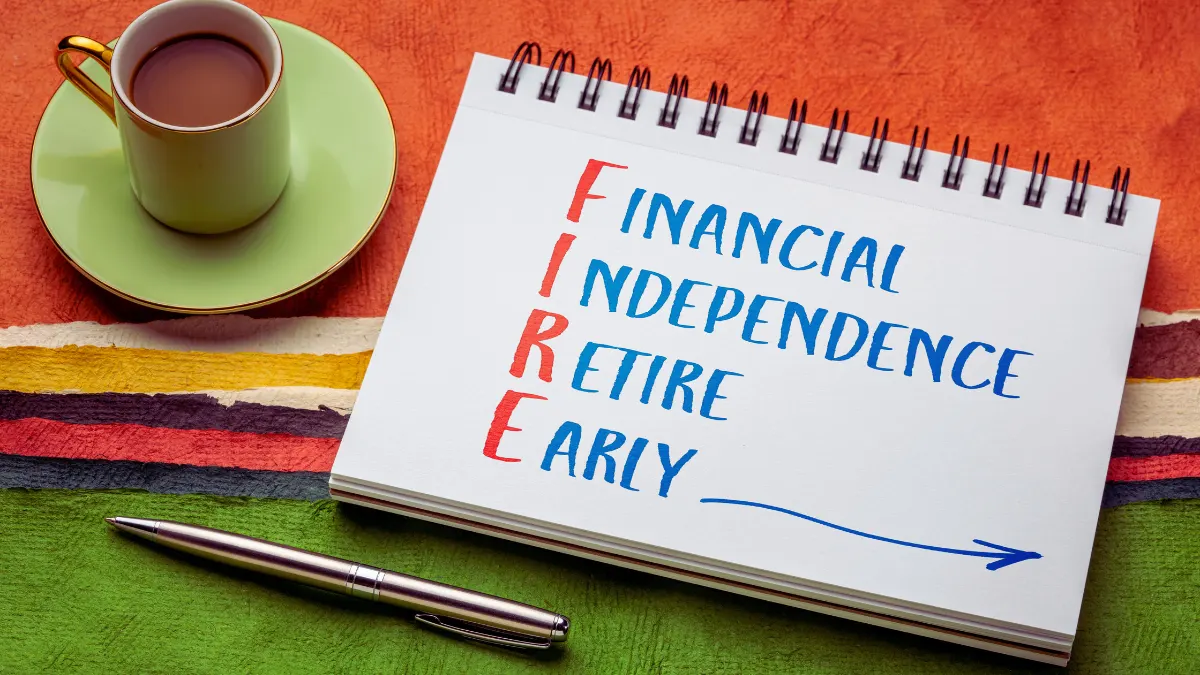The moment I hung up on my mom because work was “more important” than family dinner, I knew something was wrong.
Really wrong.
I was making $120,000 straight out of college. Working in New York City. Living what looked like the American dream. But here’s what nobody tells you about high-paying corporate jobs: sometimes the cost is higher than the salary.
You probably know this feeling. You wake up on Monday morning and feel sick. Not flu sick. Soul sick. You spend more time with your coworkers than with your family. You check emails at 11 PM and wonder if this is really what life is supposed to feel like.
You’re not alone. 76% of employees experience burnout regularly. People are waking up. Maybe you are, too.
I spent several years in Corporate America before I figured out what was really happening. These seven lessons changed how I think about work, money, and life. They might change yours, too.
Here’s what I learned that finally gave me the courage to quit.
1. Why Your Boss Owns Your Emotions (And How to Take Them Back)

I worked 10 to 12 hours most days. One hour commute each way. I thought that was normal. Everyone did it. But the real problem wasn’t the long hours.
The real problem was what happened to me as a person.
One night, I was still at the office past 8 PM. My phone rang. Mom was calling to ask if I wanted dinner. Instead of being happy to hear from her, I got angry. Really angry. Like she had done something wrong by caring about me.
“No, I don’t have time,” I snapped and hung up.
I kept working like nothing happened. But when I got home and saw her face light up when I walked in, I realized what I had become. I chose to give extra hours to help build someone else’s dream over my own family.
That’s when it hit me: If you don’t build your dreams, someone else will hire you to build theirs.
And here’s the scary part. They don’t just own your working hours. They own your emotions. Your reactions. Your relationships. 63% of workers who quit their jobs cite feeling disrespected at work. When work makes you miserable 40+ hours a week, that misery doesn’t stay at the office.
You bring it home. You snap at people you love. You become someone you don’t recognize.
What you can do: Start small. Set one boundary this week. Maybe you don’t check emails after 9 PM. Maybe you take your full lunch break. Notice how it feels to put yourself first, even for 30 minutes.
2. The Day My Coworker Disappeared (And Why That’s Good News)

Every day at 12:41 PM, I passed John in the hallway. Nice guy. Always smiling. Never complained. He worked hard and seemed happy. If you asked me to name the perfect employee, I’d probably describe John.
Then one day, he didn’t show up. The week went by. The month went by. John was just gone.
Here’s the weird part: nothing changed. People went to work. People left work. Projects kept moving. It was like John had never existed.
I knew companies don’t stop when someone leaves. But seeing it happen made me realize something important: We are all replaceable. Every single one of us.
This sounds scary, but it’s actually good news.
People are 10 times more likely to quit their jobs because of toxic work cultures rather than bad pay. Companies will replace you if they need to. But you can replace your job too.
You’re not stuck. You’re not trapped. You’re not as important to the company as you think you are. And that’s freedom.
The company doesn’t need you to survive. But do you need the company to be happy? That’s the real question.
What you can do: Write down what would happen if you quit tomorrow. Really think about it. Would the company collapse? Would projects fail? Probably not. And that’s your permission to start thinking about what you actually want.
3. How One Excel Spreadsheet Made Me Question Everything

I was sitting at my desk one afternoon. Making a PowerPoint slide. Resizing a box to make it “look nicer.”
And I started thinking: Is this it? Is this what life is about? Making really nice Excel models and PowerPoint slides?
There has to be more.
That’s when I learned: If you don’t have a purpose in life, you will become part of someone else’s purpose.
89% of Gen Z and 92% of millennials say having a sense of purpose is important to their job satisfaction. But here’s what they don’t tell you: purpose looks different for everyone.
When I was a kid, I helped other kids. If someone didn’t have a toy, I shared mine. If someone finished their snacks, I gave them some of mine. I wanted to help people.
But somewhere along the way, I got scared. I saw my parents get taken advantage of because they couldn’t speak English well. I decided the only way to protect myself was to make a lot of money.
So I got a “good job” that paid well. But it had no purpose. At least not my purpose.
I realized the best way to help people was to teach them about money. 67% of Gen Zs with positive mental health feel their job lets them make a meaningful contribution to society. Money impacts everyone. If you don’t control money, money controls you.
What you can do: Think about what made you happy as a kid. What did you care about before you started worrying about paychecks? That might be pointing you to your real purpose.
4. Why Your Job Is Making You Sick and Poor

Here’s something nobody talks about: staying in a bad job doesn’t just hurt your happiness. It hurts your wallet, too.
73% of employees believe toxic workplace culture contributed to their burnout. 84% of Millennials report experiencing burnout in their current roles. And 87% of employees say a toxic workplace has negatively impacted their mental health.
But here’s the money part: Toxic workplaces cost U.S. businesses $223 billion in culture-driven turnover. They also contribute $16 billion annually in employee healthcare expenses.
Think about that. Bad jobs make people sick. Sick people need more healthcare. Healthcare costs money. Your money.
I remember the culture at my office. Everyone tried to outwork each other. People bragged about staying until midnight. The company paid for dinner if you stayed past 9 PM. Like that was some kind of reward for giving up your life.
It was toxic. And I joined in because I wanted to fit in.
Gen Z experiences peak burnout at an average age of just 25. That’s scary. People are burning out before they even hit 30.
The stress from my job followed me everywhere. I couldn’t sleep. I got sick more often. I spent money on things I didn’t need because buying stuff was the only thing that made me feel better for a few minutes.
What you can do: Add up what your job stress costs you. Therapy. Doctor visits. Medicine. Stress eating. Shopping you wouldn’t do if you were happy. The real cost of a bad job is often higher than you think.
5. How “F-You Money” Changes Everything

I discovered something called the FIRE movement. It stands for Financial Independence, Retire Early. The basic idea: save a lot of money so you can quit whenever you want.
44% of American Gen Zers plan to retire before they turn 60. Some people are doing it in their 30s and 40s.
Here’s the math that changed my life: At a 50% savings rate, it takes 1 year of work to save for 1 year of living expenses. At a 25% savings rate, it takes 3 years of work to save for 1 year of expenses.
Most people save 10-15% of their income. FIRE people save 50% or more.
Sounds impossible? It’s not. But it requires making different choices than everyone else.
When I quit, my investments were making about $80,000 a year. That’s enough to live on in most places. A 2010 study by Daniel Kahneman and Angus Deaton shows that after you make about $75,000 a year, your happiness doesn’t increase much.
The real power of money isn’t buying stuff. The real power is buying freedom. Freedom to spend your time how you want, when you want, where you want.
58% of Americans are open to working after retirement, with 41% citing personal fulfillment as the top reason. When you don’t need money, you can work on things that matter to you.
What you can do: Try saving 25% of your income for three months. See what changes you need to make. It’s harder than it sounds, but it might be easier than you think.
6. The 2-Hour Daily Commute That Stole My Life

I spent one hour each way getting to work. Two hours a day. Ten hours a week. 520 hours a year. That’s 13 weeks of my life sitting on trains and buses.
For what?
More companies are forcing people back to offices in 2025. But employees are pushing back. More than a quarter of workers would like to work remotely full-time, but only 18% say their employer is likely to allow it.
Remote work isn’t just about comfort. It’s about time and money.
My commute cost me $300 a month in train tickets. Plus coffee, lunch, work clothes, and dry cleaning. Working from home would save me at least $500 a month. That’s $6,000 a year after taxes.
But the time was worth more than money. Two extra hours every day with family. No stress from crowded trains. No rushing to catch the 8:15 AM express.
Some people will take lower-paying remote jobs because the benefits are worth it. When you add up commute costs, work clothes, and eating out, a $90,000 remote job might put more money in your pocket than a $100,000 office job.
What you can do: Calculate your real commute costs. Time, money, stress, health. Then figure out what remote work or a shorter commute would be worth to you in actual dollars.
7. Why the Corporate Ladder Has No Top

Only 6% of Gen Z say their primary career goal is to reach a leadership position. That should tell you something about where work is going.
The old plan was simple: Get a job. Work hard. Get promoted. Repeat for 40 years. Retire with a pension and a gold watch.
That plan is dead.
39% of key job skills are expected to change by 2030. 170 million new jobs will be created by global trends this decade. The jobs your parents had might not exist when you’re their age.
But here’s the good news: you don’t need to climb someone else’s ladder anymore. You can build your own.
53% of employed adults who quit their jobs changed their field of work. People aren’t just switching companies. They’re switching entire careers.
I went from finance to teaching people about personal finance. Same skills, different purpose. I work 15-20 hours a week now instead of 65. I make less money, but I’m happier.
The traditional career ladder assumes everyone wants the same thing: more money, more responsibility, more stress. But what if you want more time? More flexibility? More meaning?
No rule says you have to follow the path everyone else takes.
What you can do: Think about your skills, not your job title. How could you use those skills differently? Maybe for different people or different problems? The answer might surprise you.
The Choice That Changes Everything

I was scared to quit. Really scared.
My dad worked 364 days a year (he only took the Chinese New Year off). Quitting felt like I was being ungrateful. Like I couldn’t handle a “real job.”
But I was more scared of staying. Scared of looking back in 20 years and wondering what could have been.
These seven lessons didn’t just change how I think about work. They changed how I think about life.
You don’t have to quit your job tomorrow. But you can start making different choices today.
Set one boundary. Save a little more money. Think about what you really want. Talk to people who made big changes.
2025 might be the year more people finally make the jump. The question isn’t whether you can afford to leave.
The question is: can you afford to stay?
Your life is happening right now. Not when you retire. Not when you get promoted. Not when you finally have “enough” money.
Right now.
What are you going to do with it?

